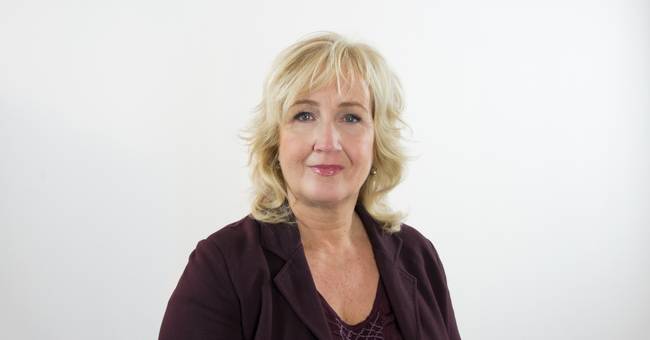They handed out red cards or yellow cards.
For each topic covered in Agenda's climate hearing, researchers rated the politicians' answers.
They were not impressed.
The politicians' answers to how Sweden should meet the climate goals were consistently rated "too late" or "too weak" by the researchers.
Nuclear power, which was brought forward as a savior in the need of several parties, will not be able to be expanded and supply electricity until 30 years from now.
Tonight's hearing showed once again that transport is the mourning child in Swedish climate policy, it accounts for 32 percent of Swedish emissions.
A round-trip flight to Thailand for one person is equivalent to as much emissions as one year of driving.
While the Center Party claimed that we can fly less and take more zoom meetings, both the Sweden Democrats and the Moderates objected that people must be able to get their lives together and that the set climate goals are unrealistic and can harm people and the agricultural sector.
No credible plans
The Green Party pushed the line that there must be less car traffic in the cities and that we must fly less.
But if all aviation is to run on biofuels, then huge areas in the world must be cultivated with biofuels to be able to supply aviation.
The Green Party instead advocated "a five-hour train journey to Hamburg as a wonderful vision".
But when the researcher from Chalmers listened to all the proposals, he just handed out a red card and said that he had not heard a credible plan to reduce the flight's emissions.
What was clear is that Sweden, which is ranked as the best in the world when it comes to climate measures, does not have a coherent and credible roadmap for how we will achieve net zero emissions by 2045.
According to the CCPI, Climate Change Performance Index, which evaluates the 57 largest economies in the world, no countries are in places one to three, ie nothing among them receives the rating "very good" for their climate measures.
But in fourth place, and thus at the top, is Sweden.
But point by point, the researchers' calculations showed how the Swedish climate measures are scattered and do not reach the goals quickly enough.
This is despite the fact that Sweden is a rich, environmentally progressive country where a majority of the parliamentary parties are behind the climate goals.
Researchers propose consumption tax
Jordbruket, som svarar för 14 procent av utsläppen i Sverige, har fortfarande ha en frizon i svensk politik. Inga förslag hördes från politikerna hur utsläppen ska minska, där jordbruksmaskiner och djurhållning står för betydande utsläpp. Forskarna däremot föreslog konsumtionsskatt på mat, men det fick inget gensvar hos politikerna.
Det som stod klart under kvällens debatt är att även om den politiska viljan finns att prioritera klimatmålen så saknas de tuffa åtgärder som skulle behövas. Naturskyddsföreningen har skickat en åtgärdslista till politikerna, kräver förbud av fossila bränslen till 2030. De kräver också att att de dolda utsläppen, det vill säga de som vi importerar från andra länder i form av varor, ska räknas in i svensk utsläppsstatistik, att subventionerna till utrikesflyget ( som idag inte betalar bränsleskatt och moms) ska bort liksom dieselsubventionerna i till jordbruket. Dessa förslag lyste med sin frånvaro liksom hela resonemanget om klimaträttvisa, hur man ska justera det faktum att de rikaste i Sverige har koldioxidutsläpp på 43 ton per person medan en medelsvensk släpper ut åtta ton per år.
In short, the challenge is so great that it almost transcends human understanding.
The pandemic puts sticks in the wheel
The pandemic also appears to be a lost opportunity to build an economy with green signs after the crisis.
According to the Climate Policy Council, only ten percent of the government's recovery efforts contributed to the climate policy goals.
The climate hearing, which was intended to show what unites the parties' climate policy, instead put the spotlight on the differences.
Once again, the conflicts became clear, between urban and rural areas, between high- and low-income earners.
How should they be compensated in sparsely populated areas for increased fuel prices?
These are conflicts that are not only reflected in Sweden but also globally, between the rich north and the poor south.
It's not just about breaking the emission curves and stopping doping the climate with more carbon dioxide, it's just as much about whose living space is to be limited, for others to catch up.
And the elephant in the room, which no party mentioned, is about accepting slower growth and slimming consumption.
A deeply unpopular political message.
But otherwise the world continues towards three degrees warming of the planet.
We have less than ten years to reverse that curve.

